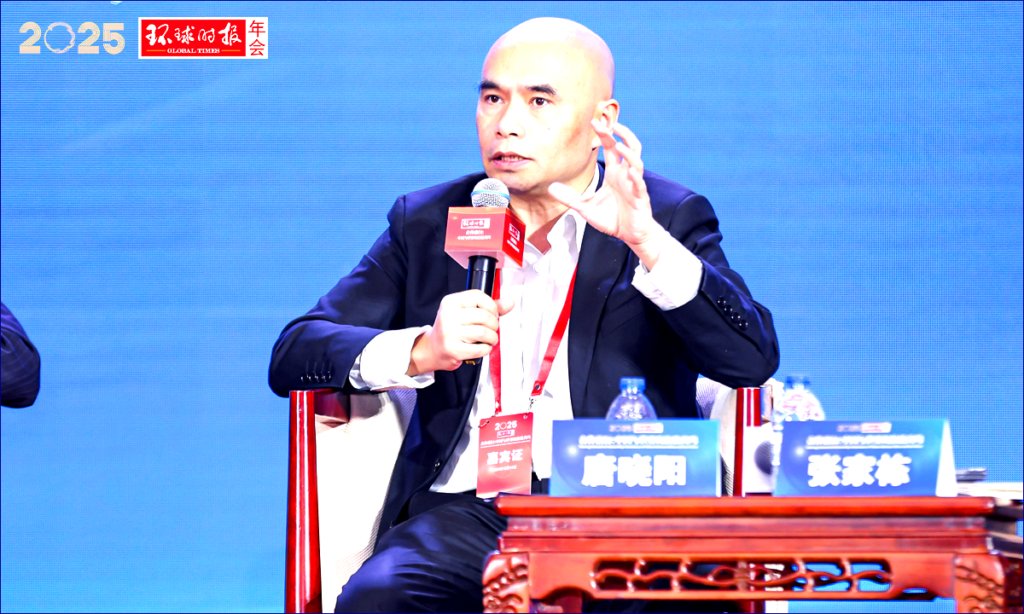Tang Xiaoyang, professor in the Department of International Relations at Tsinghua University. Photo: GT
In a captivating session at the annual Global Times Conference 2025, themed “Moving forward in Partnership: Resonance of Values between China and the World,” held in Beijing over the weekend, Tang Xiaoyang—a distinguished professor from Tsinghua University’s International Relations Department—articulated a profound transformation: the Global South has shed its image as mere “poor partners,” emerging instead as formidable players in the landscape of global development.
Tang’s discourse highlighted a significant milestone in the annals of history, pinpointing the last two years as pivotal for Global South countries. Intriguingly, recent statistical data illuminated a striking revelation: the cumulative GDP of the original BRICS quintet, when assessed through the lens of purchasing power parity, has eclipsed that of the venerable Group of Seven (G7).
Fast forward to the year 2023, and the narrative intensifies. Chinese exports to nations across ASEAN, Africa, the BRICS, and Central Asia have surged past those to traditional economic stalwarts such as the United States, Japan, and various European countries. This seismic shift underscores a transition; the Global South is no longer relegated to the fringes of economic discourse but is now a central and dynamic contributor in global development dialogues.
Peering into the crystal ball for 2025, Tang envisions a dual trajectory for these nations, intricately woven of robust economic advancement coupled with an elevated emphasis on political and cultural growth. He elucidates that the ascendance of the Global South stems from a delicate balancing act—navigating the complexities of globalization while fiercely advocating for political autonomy. This self-determination is critical, enabling these nations to cultivate genuine development within the broader framework of a globalized world.
Moreover, Tang emphasized a nuanced role for China’s economy, which is emerging not merely as an exemplar of development but also as a formidable stabilizing force within the global economic ecosystem. The pressing challenge ahead lies in how China can catalyze the development trajectories of Global South nations while fostering a collective vision amidst the political diversity that characterizes this region.
In a world ever-evolving, Tang’s insights resonate powerfully, beckoning to a future where collaborative growth and shared ideals guide the international community towards a more equitable and interconnected horizon.

